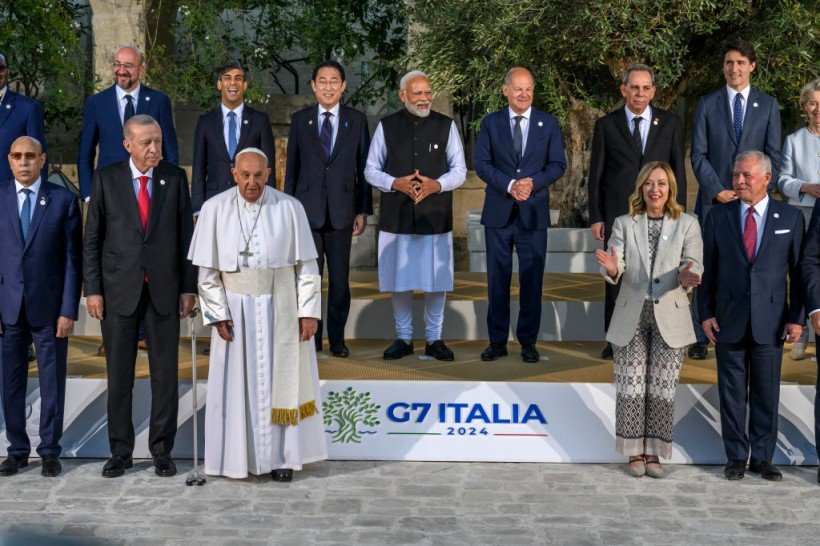“Human dignity is supreme, “in a historic appearance at the G7 summit in Puglia, Italy, addressed Pope on ethics in deployment of artificial intelligence . His speech was a clarion call to world leaders to prioritize human dignity and the common good in an era increasingly shaped by technological advancements.
Pope Francis began by expressing gratitude for the opportunity to address such a distinguished gathering on a topic of profound importance. He acknowledged the remarkable potential of AI to transform various sectors, from healthcare and education to communication and transportation. However, he quickly shifted focus to the ethical challenges that accompany these advancements, emphasizing that technological progress must never come at the expense of human values and dignity.
He stressed that any technological innovation, particularly AI, should serve humanity and contribute to the well-being of all people, not just a privileged few. This central theme of human dignity anchored his discussion on the ethical implications of AI, urging leaders to consider the broader societal impacts of their policies and actions.
Pope Francis highlighted several key areas of concern regarding AI. First, he spoke about the risk of AI exacerbating existing inequalities. While AI has the potential to create economic growth and improve quality of life, it can also widen the gap between the rich and the poor if not managed responsibly. The Pope urged leaders to ensure that the benefits of AI are distributed equitably and that marginalized communities are not left behind in the technological revolution.
The Pope also addressed the issue of AI-generated misinformation and deepfakes. He noted that these technologies can distort reality, spread false narratives, and undermine public trust. “In an age where misinformation can spread faster than the truth, we must be vigilant,” he warned. Pope Francis called for robust measures to prevent the misuse of AI and to protect the integrity of information. He emphasized that the truth is a fundamental pillar of a just and peaceful society, and AI should be harnessed to uphold rather than erode this principle.
Furthermore, Pope Francis expressed concern about the potential for AI to be used in ways that violate human rights and freedoms. He cited examples such as mass surveillance and autonomous weapons systems, which pose significant ethical dilemmas. The Pope called for international cooperation to establish clear regulations that prevent the misuse of AI for oppressive purposes. He urged leaders to adopt policies that prioritize the protection of human rights and ensure that AI is used to promote peace and security.
One of the most poignant parts of the Pope’s speech was his reflection on the concept of “technological dictatorship.” He warned against allowing technology to dominate human life and decision-making processes. “We must guard against a future where algorithms dictate our choices and constrain our freedoms,” he said. Pope Francis advocated for a balanced approach where technology complements human capabilities and enhances human potential without overshadowing the essential human elements of empathy, compassion, and moral judgment.
Pope Francis also touched on the importance of education and awareness in navigating the ethical landscape of AI. He stressed the need for comprehensive education programs that equip individuals with the knowledge and skills to critically assess and responsibly use AI technologies. “An informed and conscientious society is our best defense against the misuse of AI,” he remarked. The Pope called for collaborative efforts between governments, educational institutions, and the private sector to foster a culture of ethical AI use.
In concluding his address, Pope Francis reiterated the need for a collective commitment to ethical AI. He called on the G7 leaders to lead by example and to champion international frameworks that promote the ethical development and deployment of AI. “Our actions today will shape the future of humanity,” he said, urging leaders to make decisions that reflect a deep respect for human dignity and the common good.
The Pope’s participation in the G7 summit was a historic moment, underscoring the growing recognition of the ethical dimensions of AI. His speech served as a powerful reminder that technological advancements must be guided by moral principles and a commitment to human dignity. As the world continues to grapple with the rapid pace of AI development, Pope Francis’s words provide a valuable moral compass, highlighting the need for a thoughtful and inclusive approach to technology that benefits all of humanity.
4o



Leave a Reply